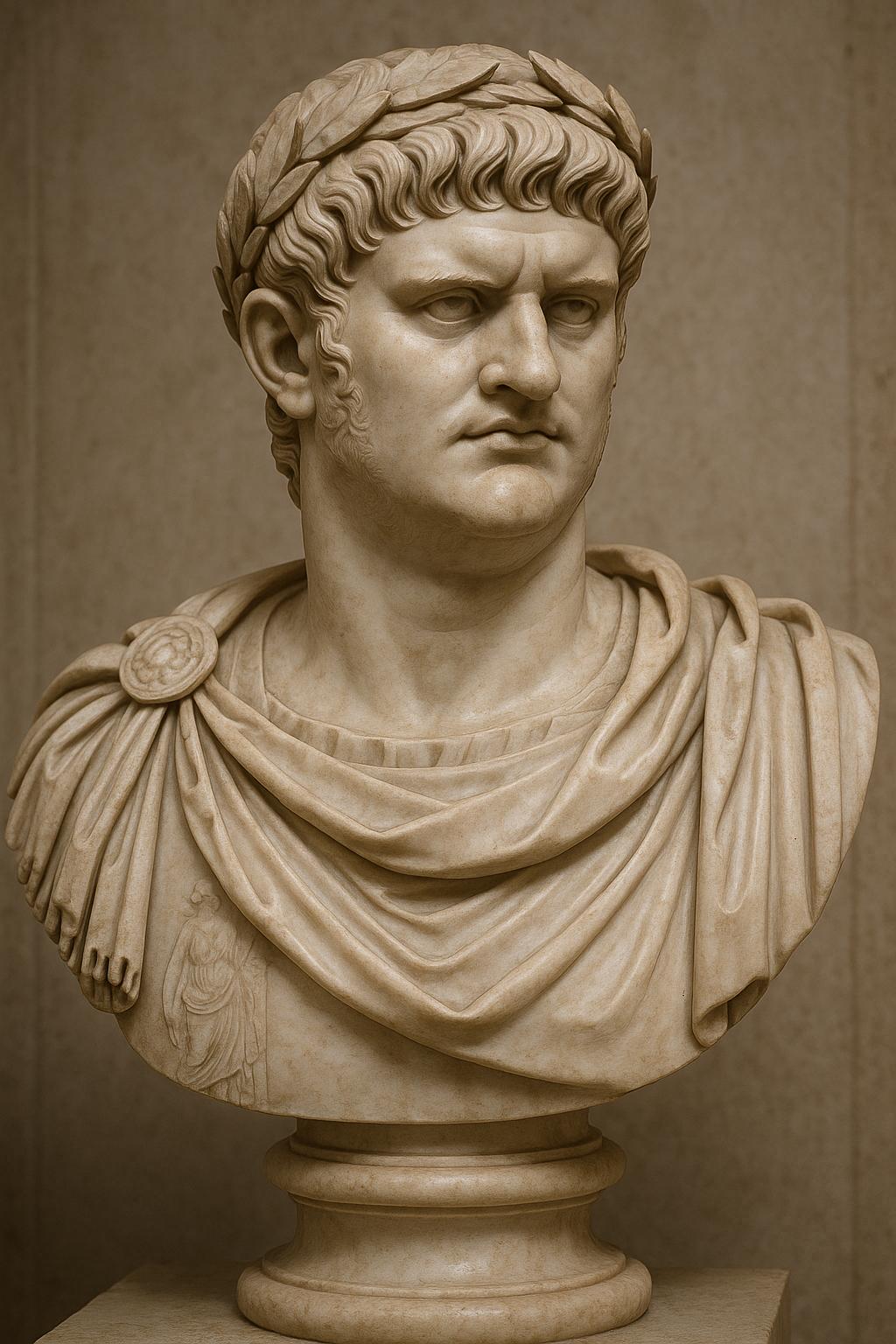




Important Facts and Events from Nero’s Life and Reign
Nero Roman Emperor is a significant figure in ancient history. Known for being the last ruler of the Julio-Claudian dynasty, his reign is remembered for dramatic events, artistic ambitions, controversial decisions, and the infamous Great Fire of Rome. His life and leadership have left a deep mark on both Roman history and world culture.
In this article, we explore Nero Roman Emperor's early life, rise to power, achievements, personal relationships, and enduring legacy.

Early Life of Nero Roman Emperor
Nero Roman Emperor was born on 15 December 37 CE in Antium, an ancient town in Italy. Originally named Lucius Domitius Ahenobarbus, he was the son of Gnaeus Domitius Ahenobarbus and Julia Agrippina, who was a great-granddaughter of Emperor Augustus.
After his father's death, Nero was raised by his ambitious mother, Agrippina. She later married her uncle, Emperor Claudius, and positioned Nero as heir to the throne. Nero's early years were heavily influenced by his family's powerful political maneuvers and ambitions.
Career and Achievements
Nero Roman Emperor gained recognition through the following key contributions:
- Became emperor at age 16, marking the first time absolute power in Rome was held by someone so young
- Introduced reforms that reduced taxes, banned bloody circus contests, and gave the Senate more power early in his reign
- Patronized the arts, held public performances as a poet and musician, and supported competitions in poetry and athletics
- Oversaw the reconstruction of Rome after the Great Fire in 64 CE and began building the lavish Golden House (Domus Aurea)
- Provided aid to disaster-stricken cities and supported Jewish communities during his rule
Key Events in Nero Roman Emperor’s Life
| Year | Event | Significance |
|---|---|---|
| 37 CE | Birth | Born in Antium, Italy; connection to Augustus’ bloodline |
| 54 CE | Became Emperor | Proclaimed emperor after Claudius' death, power at age 16 |
| 64 CE | The Great Fire of Rome | Major city disaster; led to large-scale rebuilding |
| 68 CE | Death | Marked the end of the Julio-Claudian dynasty |
Personal Life and Public Image
Nero Roman Emperor was known for his complex personality and desire for public admiration. He married multiple times, beginning with Octavia, daughter of Claudius, and later Poppaea Sabina and Statilia Messalina. Nero also famously took Sporus as a spouse in a controversial union.
His relationships—including ordering the deaths of his own mother and wives—sparked scandal and debate. His passion for music, acting, and chariot racing set him apart from traditional Roman rulers and shaped his public image as both a creative and controversial emperor.
Legacy of Nero Roman Emperor
Nero Roman Emperor continues to influence others through:
- Cultural stereotypes of extravagance, decadence, and tyranny
- Stories, plays, and films about his life are still popular in art and media
- Historical debates about his true nature—some sources note early acts of kindness, while others highlight cruelty
- His reign’s end marked a turning point for Rome, ushering in a new era
This biography highlighted the journey and influence of Nero Roman Emperor. His rule, scandals, and impact remain a subject of fascination in historical studies even today.
Learn more about historical and modern-day personalities on Vedantu’s platform.
- For more Roman history, compare Nero’s legacy with Julius Caesar and his rise to power.
- Study other ancient rulers such as Cleopatra VII to explore different leadership styles.
- Discover the philosophical context of Nero’s times with a profile on Aristotle.
- See how Nero’s fame compares internationally by reading about Akbar, another influential emperor.
- Understand Egypt’s ancient world with King Tut, a contemporary figure in history studies.
FAQs on Who Was Nero? Biography of the Last Roman Emperor
1. Who is Nero Roman Emperor?
2. Why is Nero Roman Emperor famous?
3. What happened to Nero at the end of his reign?
4. Who was Nero’s wife during his rule?
5. Did Nero really play the fiddle during Rome’s fire?
6. What did Nero say when he died?
7. What are 5 important facts about Nero?
- He was the last emperor of the Julio-Claudian dynasty.
- He is associated with the Great Fire of Rome.
- He was known for his patronage of the arts and extravagant spending.
- He faced accusations of cruelty and tyranny.
- He committed suicide to avoid capture and execution.
8. Why was Nero sentenced to death?
9. Was Nero emperor when Jesus was crucified?
10. How did Nero become emperor?
11. What was Nero known for?
12. How old was Sporus when Nero married him?





















